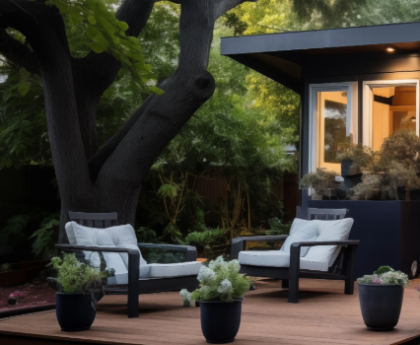
PROVIDENCE — Despite the passage of 13 out of 14 bills last year designed to spur more housing production across the state, Rhode Island still ranks last for the number of new housing permits.
“Look around, have we solved the problem?” House Speaker K. Joseph Shekarchi said on Thursday as he debuted his 15-bill legislative package aimed at creating more affordable housing in Rhode Island at a State House press conference. “No. Not even close.”
The package includes bills aimed at addressing shortages in municipal planners, classifying mobile homes as affordable housing, and a lot of local zoning changes.
What wasn’t part of the package: placing a $100 million housing bond on the November ballot — something Gov. Dan McKee proposed in his fiscal year 2025 state budget. Shekarchi told reporters he supports the idea of the bond going before the voters, but said the state has other big ticket items to worry about.
“We have a little bit of a problem — it’s called a bridge,” he said.
The speaker was referring to the partial closure of the Washington Bridge and the uncertainty surrounding whether the bridge can be repaired or needs to be fully replaced. The state still has no plan for moving forward and no cost estimates for addressing the bridge, which spans the Seekonk River connecting East Providence and Providence. Westbound lanes of I-195 have been closed since last December when engineers discovered that anchor rods originally installed when the bridge was built in 1968 were broken.
Rhode Island Department of Transportation Director Peter Alviti Jr. told WPRO’s Gene Valicenti Thursday morning that an official report with a determination for what to do about the bridge will likely be ready by next week.
But Alviti said work will likely involve putting “a new bridge structure in place.”
“When I say new bridge, I mean in whatever form it takes, and they’re still working on the details on that,” Alviti clarified to Valicenti.
The governor’s office, meanwhile, refrained from taking a public stance on Shekarchi’s housing package.
“We look forward to reviewing Speaker Shekarchi’s housing package in full as supporting the development of expanding affordable homes for all Rhode Islanders remains a top priority for Governor McKee,” McKee spokesperson Olivia DaRocha said in an email.
“We’re ready to work with stakeholders and our partners in the General Assembly to address the challenges facing Rhode Island’s housing production and affordability.”
Senate President Dominick Ruggerio is also closely reviewing Shekarchi’s legislative proposals.
“In conjunction with the House, we’ve made major investments and historic progress, but our work to ensure every Rhode Island has access to safe, affordable housing is far from finished,” Ruggerio said in a statement. “This issue has long been, and remains, a top priority for the Senate.”
Getting in-law apartments over the finish line
The one bill from last year’s package that failed to pass through the General Assembly would have streamlined the process of building accessory dwelling units (ADUs), also known as in-law apartments. It was sponsored by Rep. June Speakman, a Warren Democrat.
Before this year’s legislative session began, Shekarchi said he planned to make another push to get ADU production across the finish line. The House was quick to give its approval, voting 55-9 on Valentine’s Day to pass Speakman’s bill.
Her bill which is part of Shekarchi’s housing package, allows residential property owners to build an attached or standalone ADU “by right” under any of three scenarios: to provide for family members with disabilities; on lots at least 20,000 square feet in size; or when the proposed ADU would be carved out from an existing structure.
Municipalities can set size limits on the add-ons, but are prevented from adding extra conditions around frontage and setbacks.
The Senate has its own version of the ADU bill sponsored by Victoria Gu, a Westerly Democrat. Gu’s bill also prohibits ADUs from being sold separately from the main house and allows a maximum size of either 900 square feet or 60% of the floor area of the principal dwelling.. But Speakman said in an interview after the press conference that she had concerns that the Senate bill may prove too restrictive and wanted to collaborate on a revision.
“The Senate continues to review the ADU issue based on needed feedback from various stakeholders, including cities and towns, and work with the House on a potential path forward,”Senate spokesperson Greg Pare said in an email Thursday afternoon.
SUPPORT NEWS YOU TRUST.
More local zoning changes
Much like the 2023 housing package, this year contains a lot of legislation aimed at eliminating some of the red tape imposed at the municipal level. It also imposes more demands and deadlines.
Under pressure to meet Jan. 1 deadline, town planners had a very stressful 2023
One of Shekarchi’s bills would require all cities and towns to adopt electronic permitting for all development applications by Oct. 1, 2025, something the House Speaker said most municipalities already do.
Another of Shekarchi’s bills would create a pilot program for municipalities to combine their zoning and planning boards into one combined five-member body.
“This will save the city and towns staff, application fees,” Shekarchi said.
Other bills were written to clarify legislation passed last year. Legislation sponsored by Rep. Rober Craven, a North Kingstown Democrat, would better define provisions related to subdivision of land reviews — something that frustrated municipal planners as they rushed to meet state deadlines.
Craven also sponsored a bill that would limit any moratorium on new construction or limit on new building permits to 60 days. That would have prevented the unanimous vote by the Tiverton Town Council in December imposing a six-month moratorium on new development in the town.
But Shekarchi said the measure does not outright ban or eliminate moratoriums.
“We want them to be justified and grounded based on fact — not to prevent development,” Shekarchi said.
Other bills in the package include a database on abandoned homes, allowing residences in commercial zones, and for mobile home units to be counted as affordable housing.
These proposals come as municipal planners are still working to get their zoning ordinances up to code, which Shekarchi acknowledged. Municipal planners have previously complained that they were not given enough time to get the changes done by Jan. 1, 2024.
A representative from the state’s chapter of the American Planning Association declined to comment on the House’s new legislative package, saying members have not yet reviewed all of the proposals.
The Rhode Island League of Cities and Towns is also reviewing Shekarchi’s 15-bill package, said league spokesperson Lauren Greene.
Shekarchi said he believed that the legislation would not force Rhode Island municipalities to create more housing.
“We are once again looking to streamline the process,” he said.
But the speaker also has a message for municipalities hesitant to create more affordable housing stock: “Change is going to happen.”
“The status quo is not working,” he said.
Correction: Sen. Victoria Gu’s bill sets a maximum of 900 square feet, not 40,000.
GET THE MORNING HEADLINES DELIVERED TO YOUR INBOX




